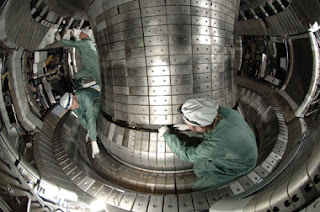Texas-based Quantum International Group Inc. plans to invest more than $2.6 billion on five plasma gasification plants in the country that can produce as much as 13,000 megawatts (MW) of electricity, a top company executive said.
Five more plasma gasification plants using industrial waste will be put up, and this can cut the cost of electricity by 25 percent in five years, Quantum International president and chief executive Al Johnson said.
The power firm, which announced projects in Surigao last week, announced yesterday at a press briefing its medium-term plans to produce 13,000 megawatts of electricity daily once five of its plants become operational.
Plasma gasification facilities apply heat to waste to produce combustible gas which in turn is used to fuel electric turbines.
Output is seen to bring down power costs for the country. Furthermore, the use of industrial, commercial and household waste to produce electricity and alternative fuels will also help local government units phase out gradually landfills and improve sanitation.
"I would like to put up 10 plasma plants in the Philippines that you will have so much electricity, you will have to export it. I want five plasma plants in the Philippines this year. Next year, I'd like to do another five," Al Johnson, QI chief executive officer and director of operations, told reporters.
"There will be five contracts done within the next 45 days. [...] From the time the contract is signed, breaking ground will take 45 days. Building a plant will typically take 18 months, while smaller models will only need 12 months," he continued.
For the first five facilities, QI intends to put up four plasma plants in Mindanao and one in Bataan, each with a waste processing capacity of between 2,000-5,000 metric tons (MT) daily.
The projects, Mr. Johnson explained, will be set up near dumpsites to ensure a steady flow of waste materials needed for the plasma gasification chambers.
QI has built plasma gasification plants for Japan and were later taken over by their local power companies.
The benchmark investment for a 1,000-MT plasma gasification facility is between $250-350 million.
He said the benchmark investment will be $250-$300 million for a plasma plant that can gasify 1,000 metric tons (MT) of garbage, $450 million for the 2,000-MT plant and $850 million for a 4,000-MT unit.
The plasma technology gasifies materials like coal and industrial waste at 5,000 to 7,000 degrees Celsius, then converting it to electricity.
For every MT of garbage, Quantum can produce 800 kilowatts up to one MW of electricity.
Johnson said initially, four plasma plants capable of gasifying 2,000 MT of garbage per day will be put up in Davao and Surigao del Norte. A plant with the capacity of gasifying 5,000 MT of garbage per day will be built in Surigao del Norte.
To date, the Luzon, Visayas and Mindanao grids have a peak demand of 7,047 MW, 1,350 MW and 1,256 MW, respectively.
"The only thing that we require is garbage. We need long term contracts with a minimum of 1,000 MT per day," Johnson said.
Quantum is already in talks with local government units for the garbage supply.
Johnson said the company also wants to sell electricity at market prices.
Given the amount of power that will be produced by the firm, Johnson said "in five years, rates in Philippines will drop 25 percent, then two years more, 50 percent."
This will help local industries to be more competitive as the country's electricity cost is the highest in Asia, he said.
Johnson said the ports in Surigao del Norte and Bataan can be used to import garbage for more power production.
The plasma gasification technology was developed by the US military in the 1960s to get rid of unstable emissions and explosives.
"The nice thing about plasma for non-military purposes is we can get rid of hazardous and toxic compounds," Johnson said.
Deadly elements in the industrial world include heavy metals, radioactive wastes, industrial sludge, asbestos and medical waste.
A plasma gasification plant can start commercial operations after 18 months of construction, Johnson said.
To date, Quantum is building a plant in Brunei, Malaysia, Bangladesh and South Africa.
Johnson said the company will fund, own and operate plasma gasification plants while allotting five percent of net revenues to host communities.
Quantum International, which is also into construction, low-cost housing, mining operations, military and police contracts and joint venture commercial project in the US, is backed by five investment trust funds.















